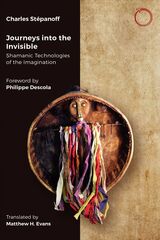12 start with K start with K
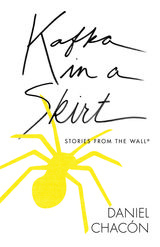
Set in El Paso and other Latinx-dominant urban spaces, Kafka in a Skirt is an immersive look into the myriad lives of the characters who inhabit these culturally diverse areas. Chacón masterfully weaves elements of the surreal and fantastic through a shining tapestry of fiction, creating moments of touching realism in contrast with scenes that are fascinatingly unfamiliar. Occasionally teasing the ghosts of Jorge Luis Borges and the Argentine poet Alejandra Pizarnik, this collection disregards boundaries and transports readers into a world merely parallel to our own. Kafka in a Skirt unravels the intricacies of culture, sexuality, love, and loneliness in a collection that shows the personal implications of barriers while remaining hopeful and bright.
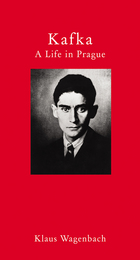
Drawing from a range of documents and historical materials, this is the first book specifically dedicated to the relationship between Kafka and Prague. Klaus Wagenbach’s account of Kafka’s life in the city is a meticulously researched insight into the author’s family background, his education and employment, his attitude toward the town of his birth, his literary influences, and his relationships with women. The result is a fascinating portrait of the twentieth century’s most enigmatic writer and the city that provided him with so much inspiration. W. G. Sebald recognized that “literary and life experience overlap” in Kafka’s works, and the same is true of this book.
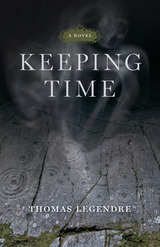
When archaeologist Aaron Keeler finds himself transported eighteen years backward in time, he becomes swept up in a strangely illicit liaison with his younger wife. A brilliant musician, Violet is captivated by the attentive, “weathered” version of her husband. The Aaron she recently married—an American expat—has become distant, absorbed by his excavation of a prehistoric site at Kilmartin Glen on Scotland’s west coast, where he will soon make the discovery that launches his career. As Aaron travels back and forth across the span of nearly two decades, with time passing in both worlds, he faces a threat to his revelatory dig, a crisis with the older Violet—mother of his two young children—and a sudden deterioration of his health. Meanwhile, Violet’s musical performances take on a resonance related to the secrets the two are uncovering in both time frames. With their children and Aaron’s lives at risk, he and Violet try to repair the damage before it’s too late.
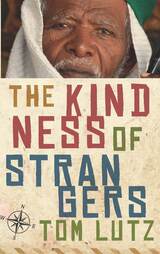
You may never visit these places, but Tom Lutz will do it for you. And while global media may serve up a steady diet of division, violence, oppression, hatred, and strife, The Kindness of Strangers shows that people the world over are much more likely to meet strangers with interest, empathy, welcome, and compassion.
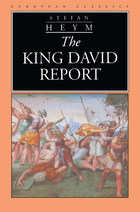
Written by one of Germany's most acclaimed dissident authors, The King David Report is both an analysis of the writer's obligations to truth, and an astute satire on the workings of history and politics in a totalitarian state.
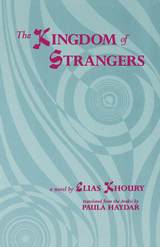
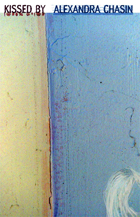
Alexandra Chasin’s remarkable stories employ forms as diverse as cryptograms (in "ELENA=AGAIN") and sentence diagrams (in "Toward a Grammar of Guilt") to display her interest in fiction as al form constituted by print on the page, every bit as much as poetry.
In "They Come From Mars," the words are arrayed on the page like troops, embodying the xenophobic image of invading armies of immigrant and illegal aliens that animates the narrative. One story incorporates personal ads ("Lynette, Your Uniqueness"), another is organized alphabetically ("2 Alphabets"), while another leaves sentences unfinished ("Composer and I"). A number of stories take metafictional turns, calling attention to the process of writing itself. The last piece in the collection plays with genre distinctions, including an index of first lines and a general index. Set in New York, New England, Paris, and Morocco, these tales are narrated by men and women, old and young, gay, straight, and bisexual; one narrator is not a person at all, but a work of art. Each of these deft, playful, and sometimes anarchic fictions is different from the others,
yet all are the unmistakable offspring of the same wildly inventive imagination.
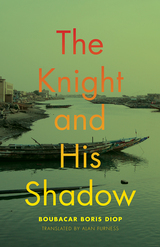
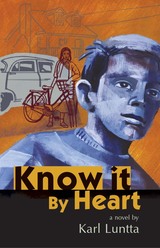
When a racially mixed family moves into an all-white neighborhood in East Hartford, Connecticut, in 1961, lives are altered forever. Karl Luntta's Know It by Heart follows the adventures of young Dub Teed, his sister Susan and neighbor Doug Hammer, who befriend newly arrived Ricky Dubois, the daughter of an African-American woman and her white husband. When a burning cross flares in the night—and worse—the young adolescents set out to find justice and discover themselves in the process.
Despite the book's serious anti-racist theme, Know It by Heart is filled with humor reminiscent of Mark Twain. In this suspenseful novel, Karl Luntta brilliantly captures the world of the young adolescent in his characters and dialogue and in the innate comedy and awkwardness of that age. This is a book that will appeal to parents and teenagers alike.
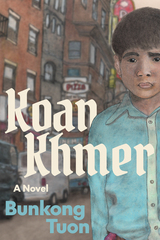
Celebrating the power of literature to rescue a life from despair, Koan Khmer is the story of Samnang Sok, an orphaned child survivor of the Cambodian genocide who sets out to make a new life in America alongside his extended family. Struggling to cope with the traumas of his past, Samnang feels alienated from his American peers at school and disconnected from his aunts, uncles, and cousins at home. Inspired by the books he discovers along the way, Samnang begins piecing together information about the past through stories told by elders, family photographs, and his own memories and dreams. Based loosely on Tuon’s life, the novel traces Samnang’s difficult journey toward an answer to the question, How does one rebuild a life after genocide and displacement and create a home?
Koan Khmer gives an unflinching voice to a distinctly Cambodian American sensibility. Tuon creates a refugee space that all Americans can visit in this bildungsroman that breathes life into cultural knowledge disrupted by loss and grief.
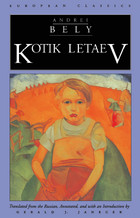
Kotik's experience is based on elements from Bely's own early childhood, but on a larger level his experience represents the stages of human history, the history of philosophy, and childhood language development. The story, seen through the eyes of a child from the age of three to five years, is told in complex, poetically developed adult language, rich in imagery and musical sound effects.
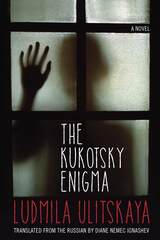
Translated from the Russian by Diane Nemec Ignashev
The central character in Ludmila Ulitskaya’s celebrated novel The Kukotsky Enigma is a gynecologist contending with Stalin’s prohibition of abortions in 1936. But, in the tradition of Russia’s great family novels, the story encompasses the history of two families and unfolds in Moscow, St. Petersburg, and the ruins of ancient civilizations on the Black Sea. Their lives raise profound questions about family heritage and genetics, nurture and nature, and life and death. In his struggle to maintain his professional integrity and to keep his work from dividing his family, Kukotsky confronts the moral complexity of reproductive science. Winner of the 2001 Russian Booker Prize and the basis for a blockbuster television miniseries, The Kukotsky Enigma is an engrossing, searching novel by one of contemporary literature’s most brilliant writers.
READERS
Browse our collection.
PUBLISHERS
See BiblioVault's publisher services.
STUDENT SERVICES
Files for college accessibility offices.
UChicago Accessibility Resources
home | accessibility | search | about | contact us
BiblioVault ® 2001 - 2025
The University of Chicago Press





